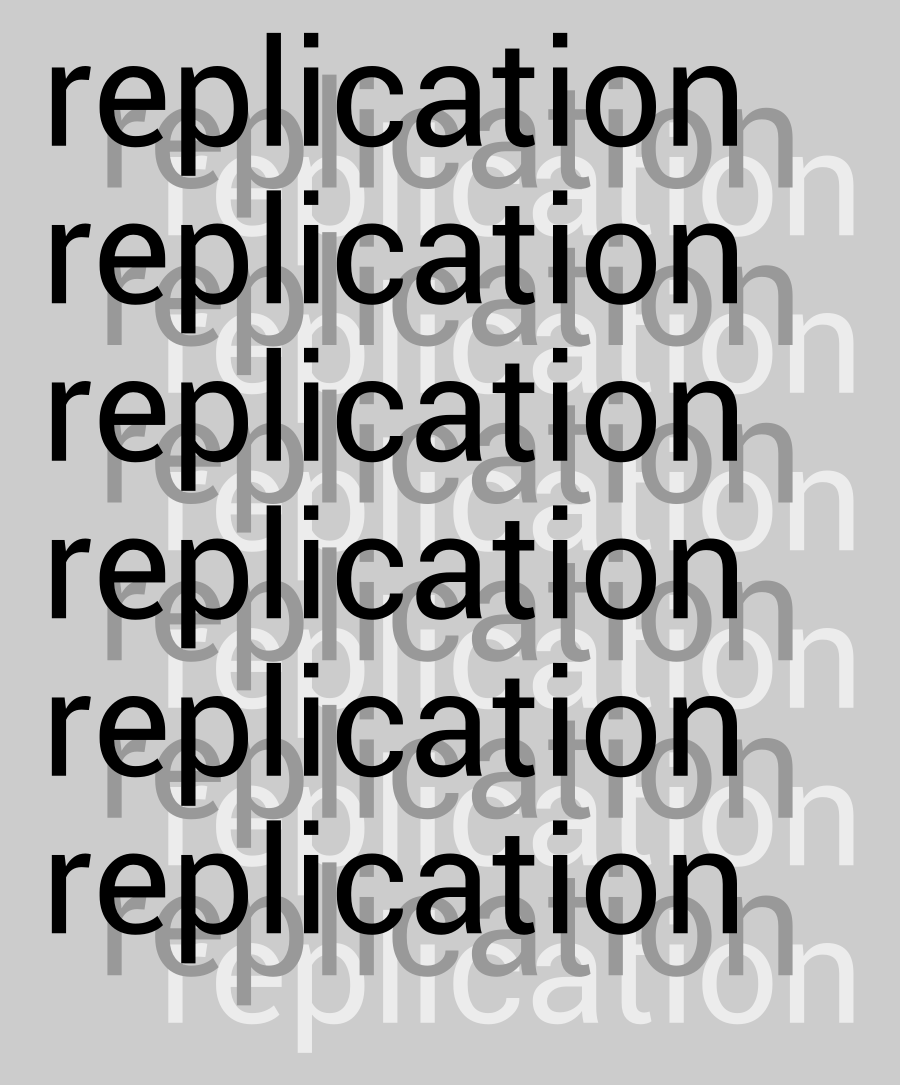 Recent controversies over the integrity of psychological studies provided cause for researchers within the field to evaluate study designs in psychological science. Other disciplines have also expressed concerns over research methods and exaggerated results. While psychology is not alone, psychological science seems centered in the cross-hairs. A team of investigators at Duke University, headed by Dr. Matthew Makel, recently reviewed 100 years of published research in the field of psychology. The study, Replications in Psychology Research: How Often Do They Really Occur?, examined the important role and current issues of replication in psychological science.
Recent controversies over the integrity of psychological studies provided cause for researchers within the field to evaluate study designs in psychological science. Other disciplines have also expressed concerns over research methods and exaggerated results. While psychology is not alone, psychological science seems centered in the cross-hairs. A team of investigators at Duke University, headed by Dr. Matthew Makel, recently reviewed 100 years of published research in the field of psychology. The study, Replications in Psychology Research: How Often Do They Really Occur?, examined the important role and current issues of replication in psychological science.
Dr. Makel’s study may explain a major factor contributing to the concern of integrity in social science research. Insufficient replication hinders the effectiveness of research and successful validation. His review may also provide a cure, or at least the beginning of a multifaceted therapy. Dr. Makel’s team also provides an avenue for enhancing validation within psychological science by examining the rate of replication, current replication trends, and concerns about successful reproductions. Increased replication may assist the field in dismissing false findings, reducing public confusion, and preventing further scrutiny over design and the entire publication process.
NOTABLE FALSE-FINDINGS
The recent alarming concerns about psychological research practices seems warranted. Notable psychologists and peer-reviewed journals in the field have published articles later found to contain false-positive results and exaggerated significance. Some of these articles achieved enhanced public notoriety due to their topics and extraordinary claims. This notoriety may explain the greater scientific and public damnation, as vague and shoddy methodology brought forth questions of the entire peer-review process in psychology, as subsequent studies failed to reproduce the extraordinary claims of the original research.
Dr. Makel mentions Blem’s 2011 studies of extra sensory perception. Dr. Darly Blem teaches psychology at Cornell University. Dr. Blem produced studies providing evidence for precognition. He claimed his subjects’ choices were affected by future events. His studies were published by a respected peer-reviewed psychology journal, The Journal of Personality and Social Psychology. Controversy erupted soon after the Cornell professor’s flawed research first appeared in the journal. Many damned a respected journal for publishing para-psychological research. They claimed publishing such psychological pseudoscience in a esteemed peer-reviewed journal increases public confusion over legitimate scientific studies, diminishes the peer-review process, and devalues valid psychological scientific endeavors. It serves as a disservice to psychological science, and the scientific method. It may, however, increase the perceived value of replication within the field.
Three unrelated teams attempted and failed to reproduces Blem’s findings. While there remains cause for concern over several areas of the journal process, encouraging replication remains a key method for self-correction. Does replication provide the ultimate answer for increased awareness of false-positive findings, allowing social scientist to better dismiss studies presenting extraordinary claims and misinterpreting results?
WASH, RINSE, REPLICATE
Dr. Makel presents replication as the “Gold Standard,” or “Supreme Court” of the scientific method. Replication upholds or dismisses results from the original research. Science self-corrects though replication. Reproduction assists new knowledge in gaining acceptance, and provides a more precise understanding of the information collected. Replication studies attempt to reproduce the results of the original study, either directly or conceptually. Though not without its own issues, replication strengthens validity and helps the field achieve consensus about findings, while hopefully neutralizing experimenter bias, misinterpreted data, or incorrect design procedures.
Through reproduction, the field is able to direct, or redirect future research, and funding, while strengthening the effective utilization of the research in question. But how much replication occurs, and can we rely on replication to achieve the rigorous design and perceived integrity required to uphold valid scientific endeavors within the field psychology?
STAY TUNED!
Next post: Monday, October 7 – The Importance of Replication in Psychological Science, Part 2
My next post will examine Makel’s study in greater detail, review replication in other scientific disciplines, and present course corrections necessary to reduce the uncertainty of research results in psychological science.
Follow me on Twitter @getpsychedblog
 Send to Kindle
Send to Kindle







Yes. Apparently prevalent in the pharmaceutical industry, genetics and neurology. Makel mentions Ioannis, he has studied this extensively. Increased frequency of replication studies would help, but there is still a pervasive expectation to achieve significance. I am not sure to what extent it’s an extension of experimenter bias or pressure from publishers.